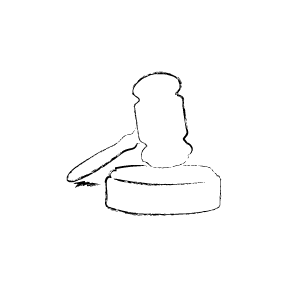Too fast, too slow, too crooked, too straight:
The tangled net of federal employee civil rights
Federal employees have a tremendously complicated procedure to vindicate their civil rights. An employee who has been unlawfully terminated can easily miss significant advantages by using the wrong procedure.
Three Choices and No Time to Make Them
A terminated permanent employee can either file a union grievance, file an Equal Employment Opportunity claim with the Agency's internal EEO office, or file with the Merit Systems Protection Board. The choice typically must be made within a matter of only a few weeks. The procedures are widely different. For our purposes right now, I will focus only on the EEO and MSPB.
- EEO investigation - The employee contacts the EEO office and initiates an
informal
complaint. After 30 days ofcounseling
the employee requests aformal
investigation, and the Agency takes statements from all potential witnesses and gathers documents to complete a Report known as an ROI. The quality of these investigations varies dramatically from agency to agency. - MSPB - Within 30 days, the employee files an appeal with the MSPB. There is a lightning fast discovery period - the attorney had better be on his game for this - and then a trial, usually within six months.
If you take the EEO route, you can always short-circuit it any time after 120 days to start an MSPB case or go to federal court.
After the MSPB Initial Decision:
Four Choices or More
After the MSPB Administrative Judge issues an initial decision against the employee the employee has four options to appeal.
- Petition for Review by the full MSPB: An appeal to the Board permits the broadest kind of
appellate
style review. But right now there is only one MSPB member and the Board has no quorum. There are probably 1,500 petitions for review pending in front of the MSPB right now. So expect big delays and likely bad decisions as the Board affirms everything in sight in a desperate bid to catch up on the backlog. - Appeal to the EEOC: If you don't appeal to the MSPB but wait and let the decision become final, you can appeal the EEO claims in the case to the Equal Employment Opportunity Commission's Office of Federal Operations. But the EEOC OFO is also significantly backlogged. Expect more lengthy delays.
- Appeal to the CAFC: The Court of Appeals for the Federal Circuit can also hear appeals from final MSPB decisions. Expect the judges to be most attuned to complex legal issues - rather than the basic fairness of the case.
- New trial in District Court: Finally, the most aggressive option is to simply start over with a brand new trial in District Court. Depending where you live, your reception in court will vary. Here in Mississippi, you will be taking your chances; some judges are great, and others less so.
Seriatim
To make things still more complex, these aren't either/or options: you can often string them together. The most thorough method is probably to start the case with the EEO process, then, when the ROI is just finishing, request an MSPB appeal, then file a petition for review with the MSPB, then an EEOC appeal, and only then go into federal court for a brand new trial. The case can sometimes take a decade - particular if you win some of those appeals and there are remands along the way.
Getting Help
If you have enough interest in this topic to have read this far, chances are good that you may need the help of an attorney experienced in representing federal employees. There are no easy answers, but at least the attorney can help you understand the consequences of your choices.



Pursuant to MRPC 7.4(a)(2) FREE BACKGROUND INFORMATION AVAILABLE UPON REQUEST
This site is for general information only, and creates no attorney-client relationship. Sending inquiries to the firm does not create an attorney-client relationship. By calling or emailing the firm, you are consenting to receive return calls, emails, mailings and text messages from the firm.
To get legal advice about an employment law, labor law, federal employee law, whistleblower protection, labor unions, worker cooperatives, immigration, discrimination, harassment, wrongful termination, severance, or any related question, you must first have a conflicts check by the firm. We represent exclusively workers, worker cooperatives and unions, but we still must check for potential conflicts of interest, for example, between a supervisor and employee.
First provide the firm with your name, and the name of the person you are making claims against. This allows the firm to check for such conflicts of interest. Until you receive confirmation that there is NO CONFLICT, none of the information you provide will be considered confidential. Do NOT provide any confidential information before we have asked you to do so.
Once we have confirmed there is no conflict, you may discuss your matter with staff in a little more detail, and, if requested, make an appointment. If at your appointment the firm accepts you as a client in writing, then the attorney will be able to provide you with employment law advice.
.
.
.